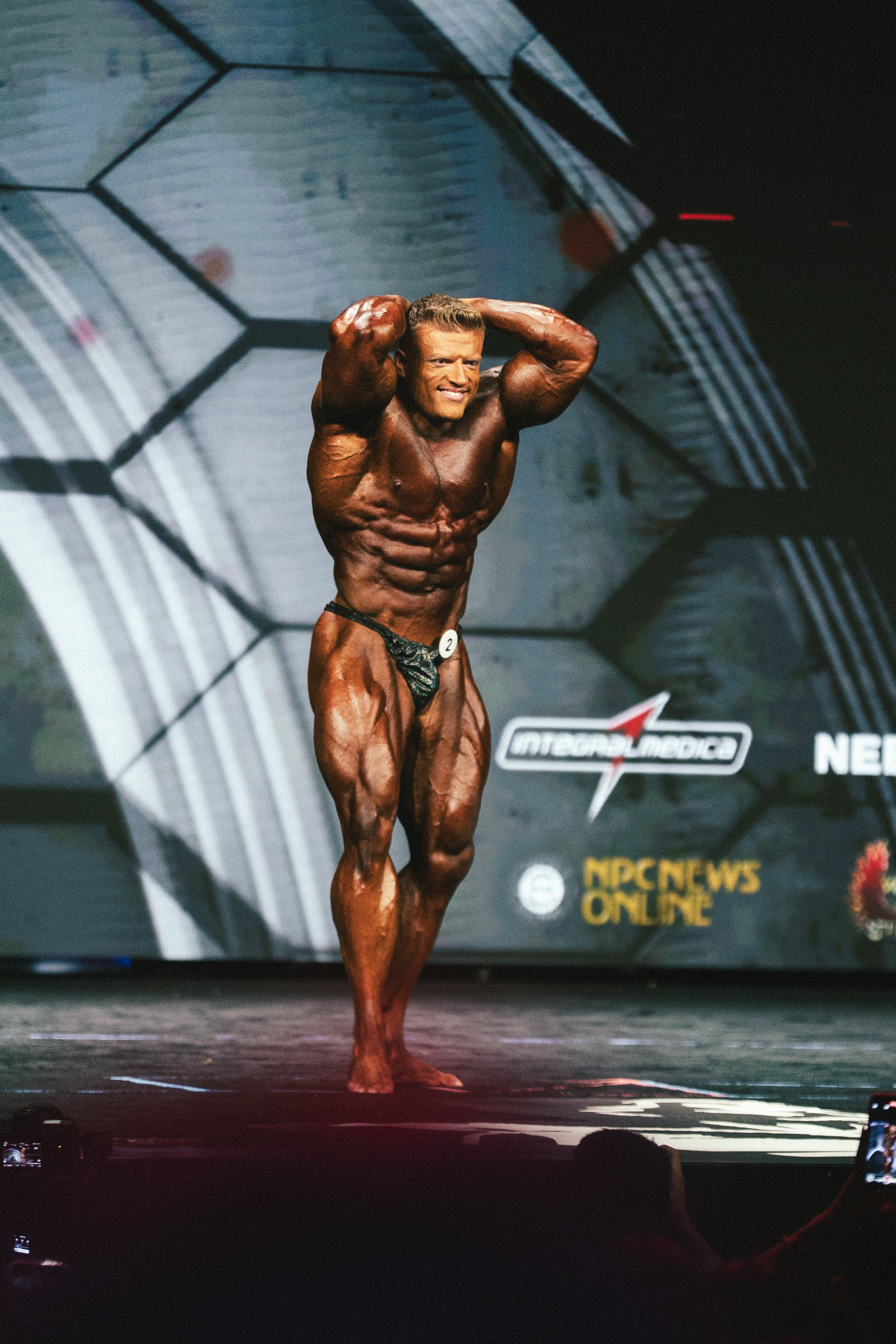Tags: Nutrition, Workout plan, Competition diet, Competition preparation
Bodybuilding is a sport that requires not only physical strength, but also tremendous discipline in terms of diet and lifestyle. One of the most crucial phases is the competition diet , often referred to as "prep". This phase is designed to get the body into optimal condition to be in the best possible shape for a competition. This article will look in detail at the different aspects and milestones of a competition diet .
What is a Competition Diet?
A competition diet is a structured approach that aims to reduce body fat to a minimum while maintaining or even increasing muscle mass . This usually takes place over a period of several weeks to months before a competition. The goal is to shape the body so that the muscles are visible and the athlete can step onto the stage in top shape . Many top pro athletes follow a strict bodybuilder fitness plan that includes a strict competition diet to optimize their physique.
The Beginning of the Competition Diet
The first step in preparing for a competition diet is to set a date for the competition. Once the date is known, the athletes or their coaches can start planning. The preparation time varies depending on the athlete's starting shape and can be up to 40 weeks. Markus Rühl, Mike Sommerfeld and Wesley Vissers are examples of athletes who have proven over the years that meticulous competition preparation, often supported by expert bodybuilding coaching, is the key to success.
A successful competition diet requires precise planning – especially in the final days before the event. Learn more about the final look: Dehydration in Bodybuilding.
Setting a Calorie Goal
An important aspect of any diet is calorie balance . To lose weight, you need to consume fewer calories than you use ( calorie deficit ). At the start of the competition diet, the athlete's daily calorie needs are calculated. Based on this, a deficit of 500 to 1000 calories per day is typically set to ensure steady weight loss.
Macronutrients: The Building Blocks of Nutrition
Nutrition during a competition diet is based on three main components: proteins, carbohydrates and fats – also known as macronutrients . Each of these nutrients plays a crucial role:
Proteins
Proteins are essential for building and maintaining muscle. During a competition diet, protein intake should be increased to ensure that muscles are not broken down during fat loss. Many bodybuilders aim to consume 2.2 to 3.5 grams of protein per kilogram of body weight . ESN, for example, offers numerous high-quality protein products that can be helpful in preparing for a competition .
Carbohydrates
Carbohydrates are the body's main source of energy. During a competition diet, carbohydrates are the biggest lever for reducing calories. As a result, carbohydrate intake is often reduced over the course of the diet to promote fat loss. Complex carbohydrates such as potatoes should be preferred over pasta or rice, as they keep you full for longer and contain more nutrients. In addition, fruit and vegetables are essential to get enough fiber. for a better metabolism. They also have the advantage of keeping you full for longer.
Fats
Fats are important for hormonal functions and the absorption of fat-soluble vitamins. During a competition diet, healthy fats such as avocados, nuts and olive oil should be preferred. Here too, the amount should be controlled (approx. 0.5-1 g per kg of body weight ).
The Training Plan During the Diet
In addition to nutrition, training plays a crucial role in competition preparation. During a competition diet, training is often more intensive:
- Strength training: To maintain or build muscle mass, strength training remains one of the most important components of the entire prep. What is important here is hard, intense and progressive training to muscle failure.
- Cardio: To burn additional calories and accelerate fat loss, moderate endurance training is often incorporated.
- An equally important component of successful fat loss is a significant increase in daily activity. To increase this, it is a good idea to take a few steps a day (>10,000).
Peak Week – The Last Week Before the Competition
The last week before the competition is crucial. The last days before the competition are called Peak Week and include specific strategies to optimize your appearance :
- Carbohydrate unloading: By significantly reducing carbohydrates again about 7-3 days before the competition, the body is completely unloaded so that all glycogen stores are emptied in order to then start with carbohydrate loading
- Dehydration : A few days before the competition, many athletes drastically reduce their water intake to flush out excess water from the body.
- Carbohydrate loading (supercompensation) : After a phase of reduced carbohydrate intake, this intake is increased (carb loading) in order to "fill up" the muscles and make them appear more voluminous. However, this is only possible with a certain body fat percentage and a thorough unloading process that has been carried out beforehand.
- Tapering of training : During this week the training volume is reduced to give the body time to recover.
Conclusion
Preparing for a bodybuilding competition through a targeted competition diet requires a lot of discipline and planning . From setting a calorie goal to adjusting macronutrients to implementing a structured training program , each step is critical to an athlete's success on stage. Urs Kalecinski, Stefan Kienzl and other top athletes have shown the importance of meticulous preparation. While this process can be challenging, it offers many bodybuilders an incredible opportunity for self-fulfillment and personal growth in the sport and in life in general.


